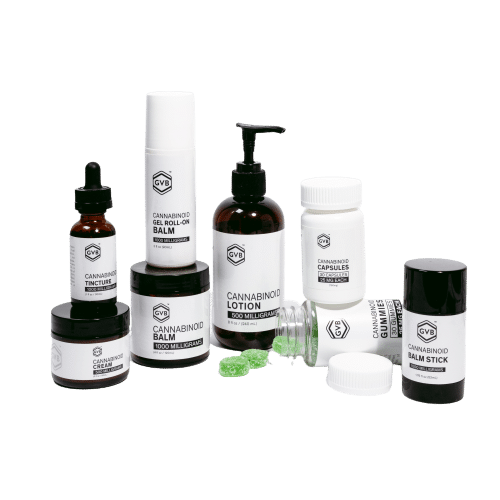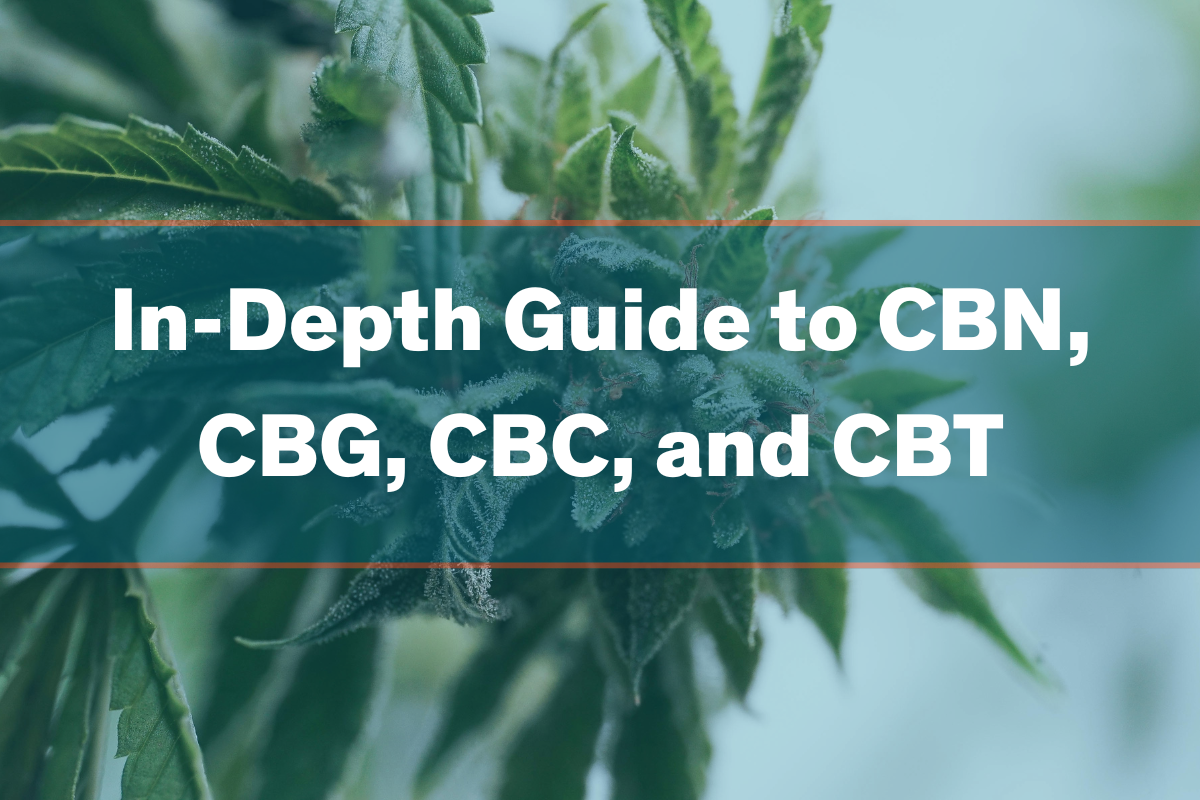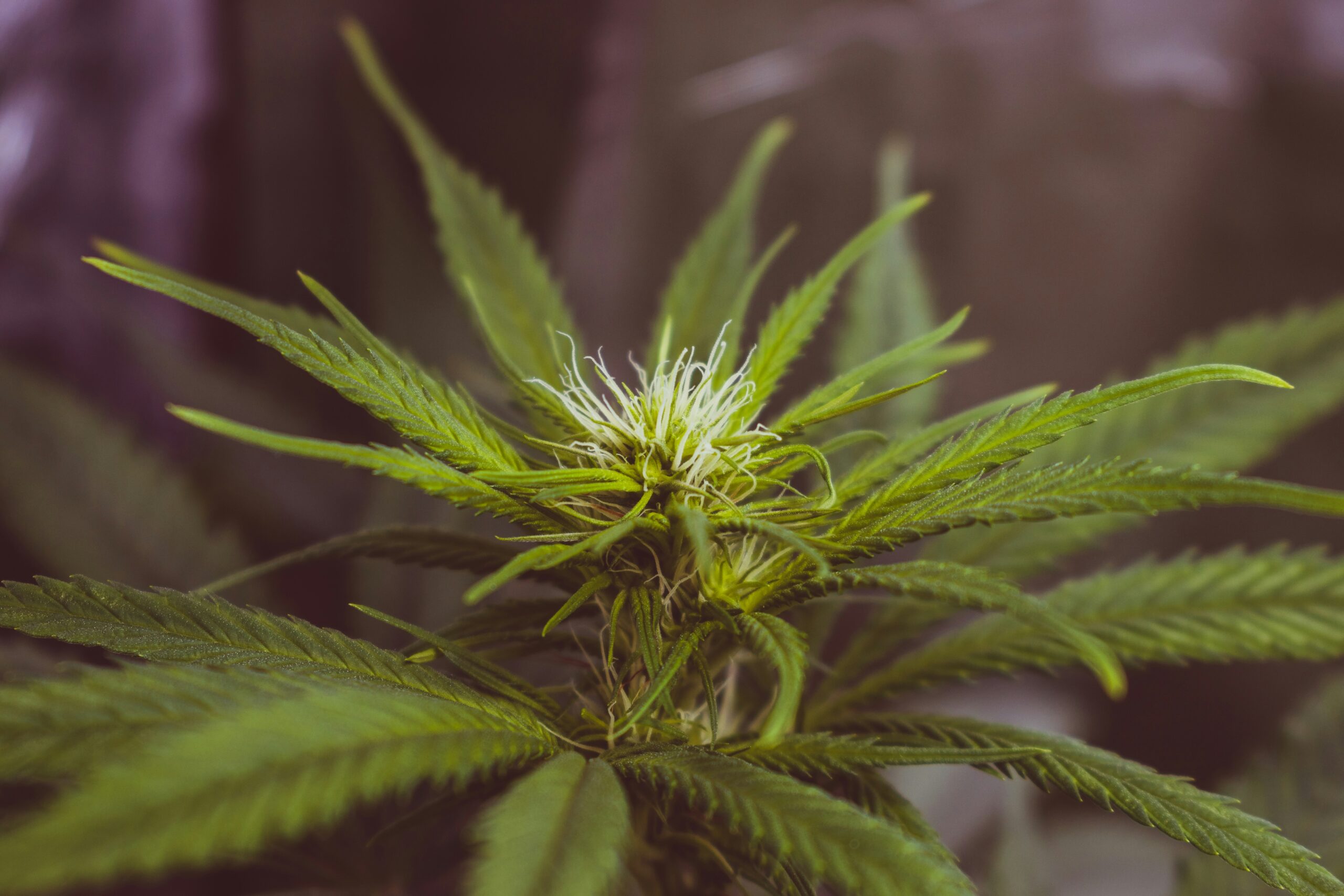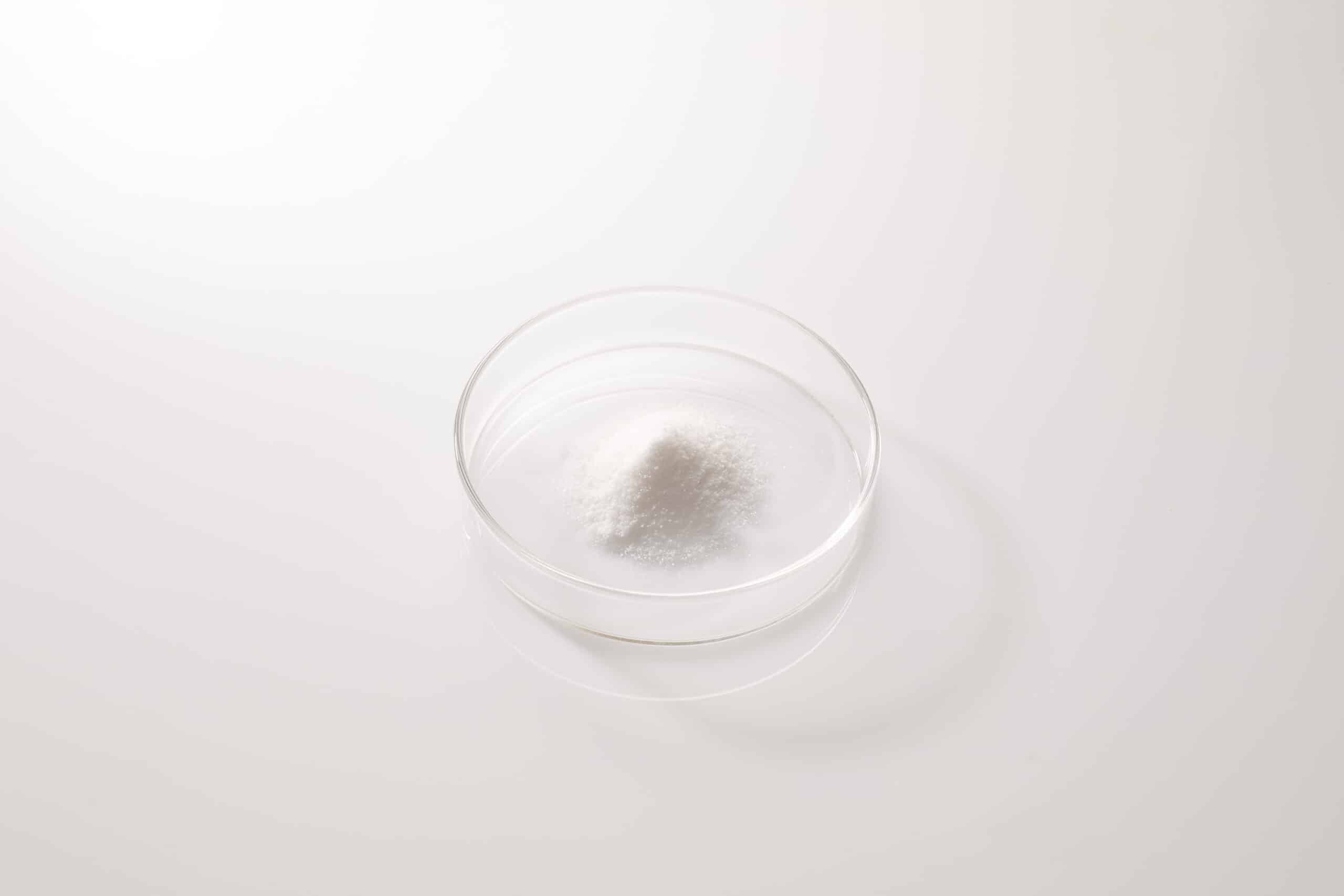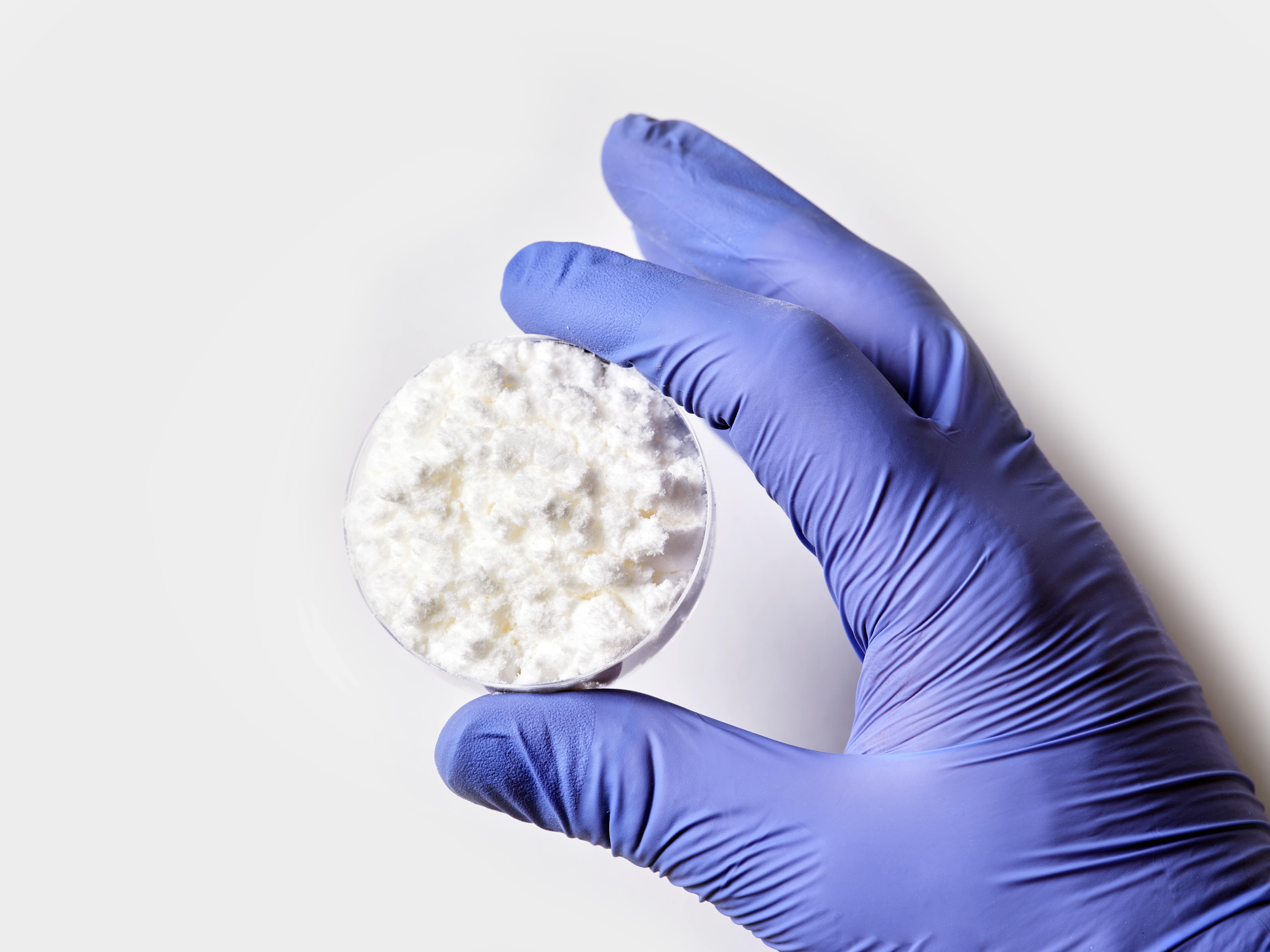Post-traumatic stress disorder (PTSD) is a condition that can interfere with a person’s ability to relax. Furthermore, this trauma-related disorder is difficult to treat with medications¹. CBD is a cannabinoid that many people find to be uniquely calming and soothing. As a result, it is natural to consider using CBD for PTSD, but is this approach to treating post-traumatic stress disorder backed by science?
In this guide, learn why CBD is theorized to be useful for PTSD, and discover recent scientific research that might back this position. CBD should certainly be researched further for its potential to help with PTSD — as you will see as we continue.
What is CBD?
Cannabidiol (CBD) is the most abundant non-intoxicating cannabinoid found in Cannabis sativa². While similar compounds like cannabigerol (CBG) and cannabinol (CBN) have also come to light recently, CBD is considerably popular over any cannabinoid aside from THC. It is the undisputed cornerstone of the online hemp market. In terms of effects, CBD will not cause any sort of euphoric, pleasureful high. It does, however, generally help you relax and research suggests that the use of CBD might be helpful to reduce symptoms of anxiety³. Since anxiety remains such a major target of CBD research, it was only a matter of time until this profoundly beneficial cannabinoid would be researched for PTSD as well.
What are the benefits of CBD?
Despite its notable lack of intoxicating effects, CBD nonetheless appears to exert a wide range of benefits in the human body. People who use CBD commonly report that it reduces their pain, helps them get to sleep at night, and alleviates their overall anxiety levels⁴. International researchers are hard at work exploring these claims, seeking to either discount or substantiate CBD’s apparent benefits in the furtherance of the science of natural health.
What is PTSD?
Post-traumatic stress disorder (PTSD) is a persistent set of negative emotions and behaviors centered around a past traumatic event or series of events. Often founded upon feelings of guilt or continued fear of danger, PTSD represents both a cognitive and neurochemical puzzle to clinicians, many of whom have been forced to classify cases of PTSD as “treatment-resistant.”¹
Along with depression and other mental conditions that appear to be treatment-resistant, PTSD has been extremely challenging for the medical community. With some people reporting improved symptoms after using CBD for PTSD, more attention is being paid to this simple, non-intoxicating cannabinoid and its incredible healing power⁵.
What are the symptoms of PTSD?
If you are managing symptoms of PTSD, it is common to no longer feel in control of your own mind and behaviors. Some patients experience vivid flashbacks in which it is like they are reliving the trauma once more.
For almost all PTSD patients, intrusive thoughts are common. Defined as uncontrolled and often damaging ideas and self-perceptions, intrusive thoughts continually plague PTSD patients throughout all hours of the day and night.
These thoughts and other symptoms make sleep or even just basic relaxation difficult for PTSD patients. It is understandable why scientists are so interested in the potential usefulness of CBD’s benefit palette against the unnecessary torment that accompanies PTSD.
Research into CBD for PTSD
In the April 2019 edition of the Journal of Alternative Complementary Medicine, the results of a study conducted by Elms et. al. were published that revealed CBD as a substance that could potentially deliver relief from the symptoms of PTSD.6 The study included 11 subjects, but even this small set of data is enough to draw some initial conclusions about the actual usefulness of administering CBD for PTSD in a clinical setting.
The subjects were all patients at a psychiatry clinic that also received routine psychiatric care during the course of the study. At the end of the eight-week study, 91% (or 10) of the 11 patients reported improvements in their PTSD symptoms after using CBD. Using the PTSD Checklist provided with the DSM-5, the facilitators of the study calculated an overall 28% decrease in PTSD symptom severity among the patients.
The authors of the study concluded that orally administering CBD over the eight-week window “was associated with PTSD symptom reduction in adults with PTSD”. Perhaps most interestingly, the authors go on to note that “CBD also appeared to offer relief in a subset of patients who reported frequent nightmares as a symptom of their PTSD”. These findings line up with academic and anecdotal evidence regarding the sleep-impacting effects of CBD.
Is CBD useful for PTSD?
The study we examined above is hardly the only piece of published research pertaining to CBD and PTSD. A handful of clinical trials into using CBD for PTSD have been initiated in the United States, for instance, and all signs point to this research accelerating in recent years.
Across the medical research discipline, an evolving sense of importance is being placed on conditions like PTSD for which we currently have no truly effective treatments. Whether it is psychedelics or cannabinoids, scientists and medical institutions are eager to find treatments for affective and stressor-based disorders that actually work without causing considerable side effects. We will know more about CBD’s usefulness for PTSD as this research continues.
The bottom line: Should CBD be used for PTSD?
It certainly appears that CBD should continue being seriously examined as a potential treatment for PTSD. While initial research directly into the usefulness of CBD for PTSD is certainly intriguing, what’s even more promising is the overall impressiveness of CBD’s apparent usefulness for mental health. From anxiety to depression to PTSD, people swear by CBD, and it’s about time we discovered exactly why.
CBD PTSD FAQs
1. How do you calm down when you have PTSD?
Some of the most basic ways that people calm down when they are feeling the symptoms of PTSD include deep breathing and visualizing calm or soothing environments or images. Therapists may ask people with PTSD to try additional techniques when symptoms occur, but ultimately, the most valid approach is gently soothing the underlying emotions that support PTSD. This is a complex process that no single substance can facilitate on its own.
2. What strain of CBD is best for pain?
No one is quite sure if there is a particular strain of CBD-rich hemp flower that is better for pain than others. If CBD is good for pain overall, though, the strain with the highest concentration of CBD would most likely be the most effective in that regard. At the same time, cannabis is a massively complex plant that we are only beginning to understand — perhaps some combination of cannabinoids and terpenes might be more effective than any one cannabinoid alone.
3. Does CBD help with feeling overwhelmed?
Some people feel that taking CBD can help them relax when they are overwhelmed. Most CBD products take a while to kick in, however, so expecting immediate relief from feelings of overwhelm might be a bit unreasonable.
4. What kind of CBD is best for severe anxiety?
If you suffer from severe or acute onset of anxiety, you’ll want to use a form of CBD that kicks in quickly. CBD tinctures, for instance, absorb in your mouth before swallowing, potentially allowing faster activation times. Ask your doctor if you have any further questions about treating severe anxiety.
Sources
- 1. Fonzo, G. A., Federchenco, V., & Lara, A. (2020). Predicting and managing treatment non-response in posttraumatic stress disorder. Current Treatment Options in Psychiatry, 7(2), 70-87, Retrieved from https://www.ncbi.nlm.nih.gov/pmc/articles/PMC7748158/
- 2. Protti, M., Brighenti, V., Battaglia, M. R., Anceschi, L., Pellati, F., & Mercolini, L. (2019). Cannabinoids from Cannabis sativa L.: a new tool based on HPLC–DAD–MS/MS for a rational use in medicinal chemistry. ACS Medicinal Chemistry Letters, 10(4), 539-544.Retrieved from https://www.ncbi.nlm.nih.gov/pmc/articles/PMC6466817/
- 3. Skelley, J. W., Deas, C. M., Curren, Z., & Ennis, J. (2020). Use of cannabidiol in anxiety and anxiety-related disorders. Journal of the American Pharmacists Association, 60(1), 253-261. Retrieved from https://www.sciencedirect.com/science/article/abs/pii/S154431911930514X
- 4. Haack, M., Simpson, N., Sethna, N., Kaur, S., & Mullington, J. (2020). Sleep deficiency and chronic pain: potential underlying mechanisms and clinical implications. Neuropsychopharmacology, 45(1), 205-216. Retrieved from https://www.ncbi.nlm.nih.gov/pmc/articles/PMC6879497/
- 5. Bitencourt, R. M., & Takahashi, R. N. (2018). Cannabidiol as a therapeutic alternative for post-traumatic stress disorder: From bench research to confirmation in human trials. Frontiers in Neuroscience, 502. Retrieved from https://www.frontiersin.org/articles/10.3389/fnins.2018.00502/full?_ga=2.28443646.376123967.1620850395-746040275.1604383068
- 6. Elms, L., Shannon, S., Hughes, S., & Lewis, N. (2019, April). Cannabidiol in the Treatment of Post-Traumatic Stress Disorder: A Case Series. The Journal of Alternative and Complementary Medicine, 25(4), 392–397. Retrieved from https://doi.org/10.1089/acm.2018.0437

